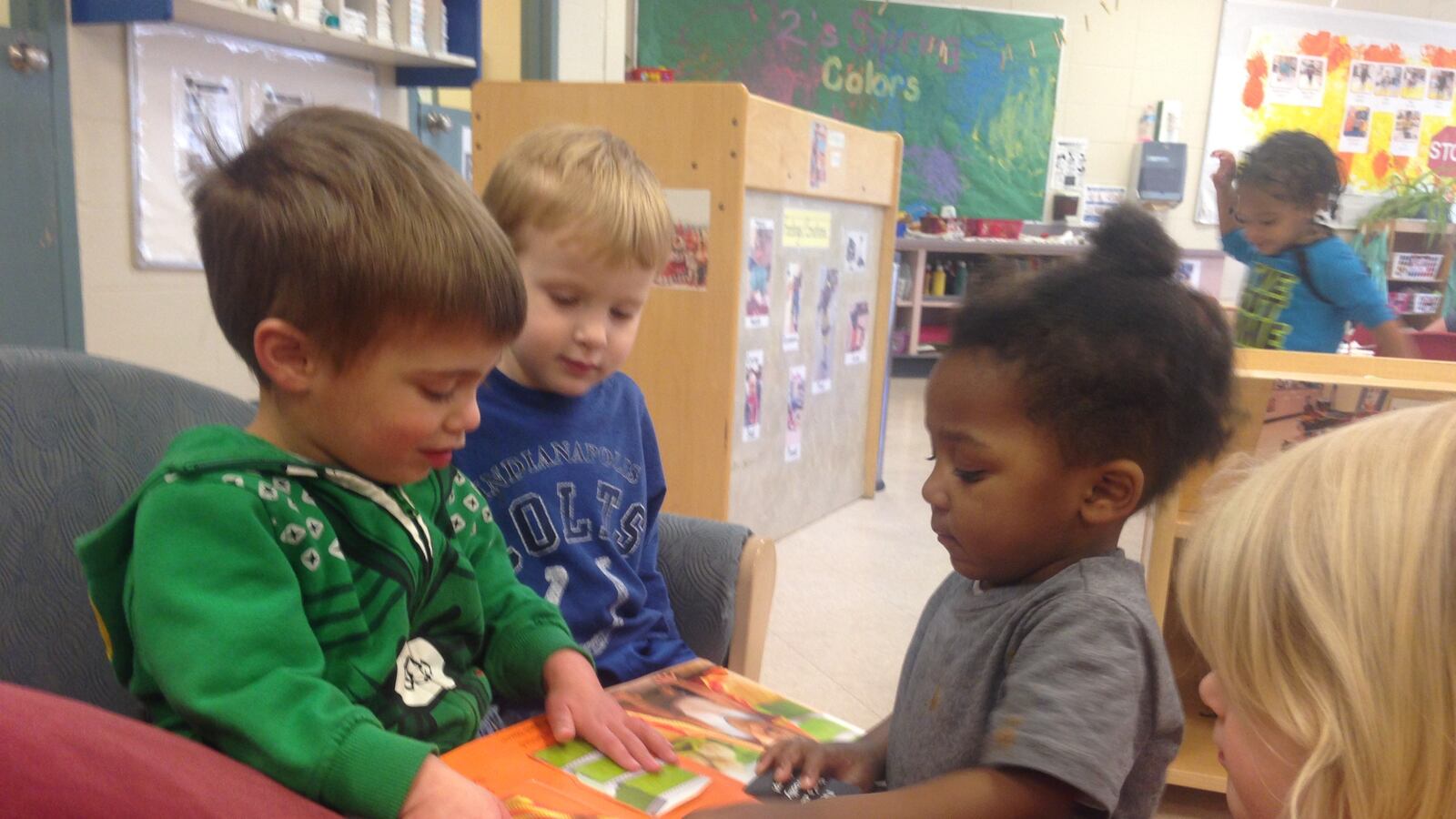Thousands of Indianapolis families vying for preschool scholarships will be disappointed this spring. More than 4,200 hundred children applied for spots in a program that’s expected to serve about 1,600 kids.
With studies showing that whether a child enrolls in preschool is an influential predictor of school readiness and long-term success, interest in a program that covers tuition for low-income three- and four-year-olds in Indiana has vastly outpaced the number of vouchers available.
Applications dipped slightly this year — about 700 fewer qualified children applied to participate in the program since last year — but there are still far more children needing scholarships than money available to help them. That includes children who applied for both a state-funded program and one that’s a partnership between the City of Indianapolis and private donors. Both programs have the same application process
“There’s a significant gap in how many kids we’re able to serve versus how many want and need high quality pre-k,” said Ted Maple, president of Early Learning Indiana, a non-profit childcare provider and advocacy organization.
The scholarships are a big step forward for early childhood education in Indiana, which didn’t receive state funding until recently. But the number of kids served is still a sliver of the need in Marion County, which has more than 27,000 preschool-age children.
Decades of research show that high-quality preschool programs not only give kids better academic and social skills when they enter kindergarten, but also have long-lasting benefits. Low-income children who go to preschool stay in school longer, earn more money and may even be less likely to commit crimes.
There also are immediate economic benefits because the cost of childcare, which can be more than $10,000 per year, is a huge burden for low-income families, Maple said. The Indiana preschool vouchers target families earning less than 127 percent of the federal poverty limit, which is $30,861 for a family of four. The city program gives scholarships to families who make up to $44,955.
For Charlene Fletcher-Brown — a single mother whose daughter won the preschool voucher lottery last year — the scholarship has helped her afford basics, like clothing and gas.
“It’s been amazing not to have to worry about how I could afford childcare,” Fletcher-Brown said.
When it comes to preschool, Indiana is behind the curve. Before the state created its preschool pilot program in 2014, it was one of just nine states in the nation without any funding for preschool. Enrollment is also anemic in Indiana — just 40 percent of 3- and 4-year-old Hoosiers attend preschool. In Illinois, the enrollment rate is 54 percent, according to census data.
“Indiana has lots of neighbors to learn from,” said Laura Bornfreund, a researcher with the New America Foundation.
Some states are rapidly expanding their preschool programs. Some major cities like New York have made free pre-kindergarten available to all four-year-olds. Indiana is a long way from implementing a sweeping program like that, but Bornfreund said that beginning with a pilot and then scaling it up can help ensure that the preschools serving kids are high-quality.
She cautions, however, that the state needs to have a plan for ongoing expansion.
A strong push for expansion is on the horizon. Preschool advocates are planning to lobby aggressively for more state preschool funding during the upcoming session, said Andrew Cullen, the vice-president of public policy for the United Way of Central Indiana.
After three years of pilots, the state has learned how to reach families and improve preschool quality, said Cullen.
“We’ve have learned a lot from the pilot,” he said. “That’s what the pilot was there for, so it’s time now to talk significantly about an expansion.”
Preschool has won bipartisan support but there have been hitches along the way. The state scholarship pilot was championed by Gov. Mike Pence, who worked to win approval from reluctant legislators. In 2014, however, he made a controversial decision not to apply for up to $80 million in federal funding for preschool.
The scholarships available to children in Marion County are heavily funded by local and private sources. In addition to the state funding — $10 million across the five pilot counties — the city’s program pools government dollars with corporate and philanthropic donations that add up to $8 million a year.
That approach has significantly boosted preschool access in the city, but advocates say that for expanded preschool to be sustainable in the long-term, the state must provide more funding — not rely on corporate and philanthropic donations.
“Just like we don’t expect Eli Lilly or United Way to pay tuition for K-12, we can’t expect Eli Lilly or United Way to pay tuition for pre-k,” Cullen said. “That’s fundamentally government’s role.”

